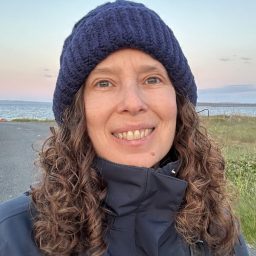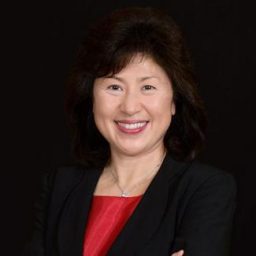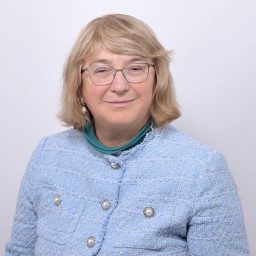
Four faculty members from Florida State University have been selected to receive a Fulbright U.S. Scholar Award for the 2025-2026 academic year by the U.S. Department of State and the Fulbright Foreign Scholarship Board.
Their work will take them to Ireland, Taiwan, Hungary and India to advance scholarship through global perspectives.
Fulbright U.S. Scholars are faculty, researchers, administrators and established professionals teaching or conducting research in affiliation with institutes abroad. Fulbright Scholars engage in cutting-edge research and expand their professional networks, often continuing research collaborations started abroad and laying the groundwork for forging future partnerships between institutions. Upon returning to their home countries, institutions, labs, and classrooms, they share their stories and often become active supporters of international exchange, inviting foreign scholars to campus and encouraging colleagues and students to go abroad.
The 2025-2026 Fulbright Scholars from FSU are:

Kristin Dowell, an associate professor in the Department of Art History in the College of Fine Arts, will use the Fulbright U.S. Scholar Award to conduct research at University College Cork (UCC) in Cork, Ireland, during the spring 2026 semester.
Dowell specializes in art of Native North America with an emphasis on Indigenous cinema and contemporary art. During her time at UCC, Dowell will develop a new exhibition to be installed in Ireland. She will also teach seminars on collaborative research projects, Indigenous art history and curatorial practices, in addition to several public speaking engagements.
“I am honored to have been selected for this Fulbright Scholar Award at the esteemed University College Cork, which prioritizes the belief that ‘the university is in the community, of the community and for the community,’” Dowell said. “This ethos strongly aligns with my own research ethics, interdisciplinary scholarly and curatorial practices, and long-term professional commitment to community engagement.”

Ying (Mai) Kung, a clinical professor in the College of Nursing and family nurse practitioner (FNP) with 35 years of experience, is taking her expertise to Chang Gung University in Taoyuan City, Taiwan, where she will focus on enhancing FNP education through teaching and mentoring faculty.
Taiwan admitted its first cohort of FNP students into master’s programs in 2021 in an effort to tackle national health care challenges. A major issue facing the field is the shortage of qualified staff.
“This is a pivotal time for FNP education in Taiwan,” Kung said. “I am eager to understand the education system for Family Nurse Practitioners and contribute to the creation and refinement of an FNP curriculum that can serve as a model for other universities.”
In addition to her teaching, Kung will collaborate with the dean of Chang Gung University’s College of Nursing on a grant titled “The Effectiveness of Enhancing Self-Care Abilities for Agriculture and Aquaculture Workers Diagnosed with Cardiometabolic Diseases.” The project aims to strengthen health outcomes for vulnerable populations in Taiwan, while also providing insights that Kung hopes to apply to improving care for rural communities in Florida’s panhandle.
“The experience as a Fulbright Scholar in Taiwan will provide me with an immersive experience that will broaden my perspective and help me gain an in-depth understanding on how to improve access to quality health care while advancing the nursing profession globally,” Kung said.

Anke Meyer-Baese, a professor in the Department of Scientific Computing in the College of Arts and Sciences, received the John von Neumann Distinguished Award in STEM, a Fulbright Distinguished Scholar Award, to conduct cutting-edge STEM research at the University of Szeged in Szeged, Hungary.
Meyer-Baese will spend the spring 2026 semester developing new research that combines artificial intelligence (AI) and modern control network theory to study the spread of neurodegenerative conditions like Alzheimer’s disease. In addition, she will be teaching a course on AI with the University’s Research Group on Artificial Intelligence (RGAI). The University of Szeged is a premier AI center in Europe, so being able to work at this location will deepen her understanding of theoretical foundations in AI.
“Alzheimer’s disease is the leading cause of dementia worldwide,” Meyer-Baese said. “AI is the most promising tool for exploring the relationship between brain structure and function.”
This isn’t her first Fulbright Award. During the 2016-2017 academic year, Meyer-Baese earned a Fulbright U.S. Scholar Award to conduct research at the ICube Laboratory in Illkirch-Graffenstaden, France.
“I am most looking forward to researching in a vibrant AI institution, establishing new connections and experiencing the Hungarian culture and interacting with their wonderful people,” Meyer-Baese said.

Vasubandhu Misra, a professor of meteorology in the Department of Earth, Ocean and Atmospheric Science (EOAS) in the College of Arts and Sciences, will spend four months at the Indian Institute of Technology at Bhubaneswar (IITBbs) in Odisha, India, through the Fulbright U.S. Scholar Program.
At IITBbs, Misra will explore how long-term shifts in climate patterns alter the daily cycle of the Indian Summer Monsoon, with the hopes of predicting these weather events. In addition, he will teach a graduate and a senior undergraduate level course on large-scale tropical meteorology.
“I was drawn to the chance to build lasting collaborations with international colleagues, share knowledge in the classroom and pursue research in a setting that offers fresh perspectives,” Misra said. “For me, it represents not just an academic honor but a chance to contribute meaningfully to strengthen the connections between people, ideas and places.”
The Earth, Ocean and Climate Sciences program at IITBbs was established just over a decade ago and is rapidly developing into a center of excellence in the field.
“I find this a great opportunity for me to learn and experience this development, and if possible, contribute to their growth,” Misra said.
Fulbright is a program of the U.S. Department of State, with funding provided by the U.S. government. Participating governments and host institutions, corporations and foundations around the globe also provide direct and indirect support to the program, which operates in over 160 countries worldwide.
Since 1946, the Fulbright Program has provided more than 400,000 talented and accomplished students, scholars, teachers, artists, and professionals of all backgrounds with the opportunity to study, teach and conduct research abroad. Fulbrighters exchange ideas, build connections, and work to address complex global challenges. Notable Fulbrighters include 62 Nobel Laureates, 89 Pulitzer Prize winners, 80 MacArthur Fellows, 41 heads of state or government, and thousands of leaders across the private, public and non-profit sectors.
Over 800 individuals teach or conduct research abroad through the Fulbright U.S. Scholar Program annually. In addition, over 2,000 Fulbright U.S. Student Program participants — recent college graduates, graduate students and early career professionals — participate in study/research exchanges or as English teaching assistants in local schools abroad each year.
In the United States, the Institute of International Education implements the Fulbright U.S. Student and U.S. Scholar Programs on behalf of the U.S. Department of State. For more information about the Fulbright Program, visit fulbrightprogram.org.
FSU faculty interested in learning more about applying for Fulbright Program funding can contact Peggy Wright-Cleveland, Director of Faculty Development in the Office of Faculty Development and Advancement, at mwrightcleveland@admin.fsu.edu or (850) 645-8202.



